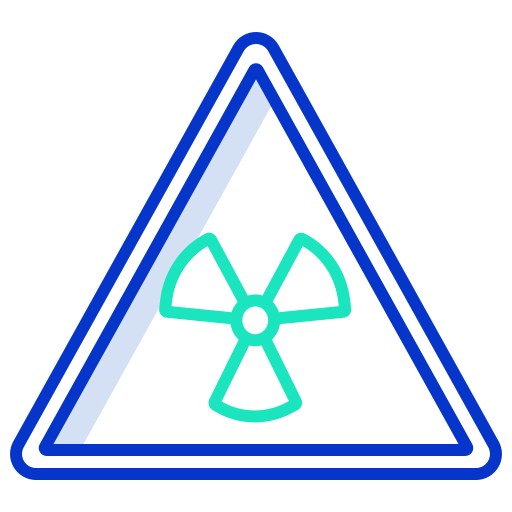How to List Certifications on Your Resume for 2024 (With Examples)
Certifications can play a key role in making your resume stand out, especially in today’s increasingly competitive job market. Whether you’re an experienced professional, looking to switch careers, or just stepping into the job market, certifications can bolster your credibility, enhance your qualifications, and give you a competitive edge.
This guide will take you through everything you need to know about including certifications on your resume. From why they’re essential in 2024 to how to format and position them, this comprehensive guide will ensure that your resume stands out. You’ll learn the best practices, see real examples, and find out how to list certifications that boost your chances of landing an interview.
 Full Certification Name
Full Certification Name
Include the complete name of the certification. Avoid abbreviations unless it’s a well-known certification (e.g., PMP).
 Certifying Body
Certifying Body
Always mention the organization that issued the certification to establish legitimacy (e.g., AWS, PMI).
 Date of Completion & Expiry
Date of Completion & Expiry
Provide the date you received the certification. If it’s still in progress, list the expected completion date. Also, include the expiry date for certifications that need renewal (e.g., AWS, CPR).
 Relevance to the Job
Relevance to the Job
Make sure that the certifications listed are directly relevant to the job you’re applying for. Avoid listing irrelevant certifications that don’t add value.
 Right Placement on Resume
Right Placement on Resume
Add certifications in the right sections: Education, Skills, or Certifications. Choose the section where they enhance your profile the most.
 Optimize for ATS
Optimize for ATS
Use exact keywords from the job description to help your resume pass through ATS filters. Include relevant skills and certifications.
 Showcase in Your Header
Showcase in Your Header
If the certification is crucial (e.g., PMP for project management), consider listing it in your resume header next to your name (e.g., Jane Doe, PMP).
Why Certifications Are Important for Your Resume in 2024
The job market is shifting, and remote work, automation, and specialized knowledge are more valued than ever before. Certifications give employers confidence that you possess the latest skills in your field and are committed to professional growth. Whether you’re in tech, healthcare, project management, or any other industry, the right certifications demonstrate that you’re ready for the challenges of today’s work environment.
If you’re changing careers, certifications can provide proof that you’ve mastered relevant skills, even if your work experience isn’t in the same field. Consider learning how to get started in medical courier business or pursuing an in-demand certification in tech or project management.
The Role of Certifications in Career Advancement
Certifications act as concrete proof that you have acquired specific skills, often in areas that are critical for the position you’re applying for. In industries like IT, project management, and healthcare, certifications are sometimes a basic requirement, and without them, you may not even get a foot in the door.
Some key reasons certifications matter:
- Shows Mastery: A certification proves you’ve reached a standard of competency in your field.
- Increases Credibility: Having relevant certifications from well-known institutions (like PMP from PMI or AWS from Amazon) lends authority to your expertise.
- Boosts ATS Rankings: Applicant tracking systems (ATS) often scan resumes for industry-specific certifications. Including them could push your resume to the top of the pile.
- Keeps Skills Relevant: Certifications prove you’re up-to-date with the latest industry knowledge, especially in fast-evolving fields like IT, engineering, and digital marketing.
For instance, if you are applying for entry-level jobs in 2024, certifications like Google Analytics or AWS can drastically increase your chances of securing a position. Top Entry-Level Jobs in 2024 highlight the high-pay potential in roles that value specialized certifications.
How Certifications Affect Your Hiring Potential
It’s not just about getting hired—certifications can also affect your earning potential. Research shows that professionals with certain certifications earn significantly higher salaries than their non-certified peers. For instance, project managers with PMP certification earn, on average, 20% more than those without it.

When to Include Certifications on Your Resume
Including certifications on your resume can be a strategic move, but they should be added thoughtfully. There are key situations where including certifications can make or break your application.
Include Certifications When:
- They’re Required for the Job: If a job posting explicitly asks for a specific certification, you need to include it.
- They Enhance Your Credentials: Even if not required, certifications can demonstrate your expertise, especially if they’re well-recognized in your industry (like CISSP for cybersecurity roles or PMP for project managers).
- You’re Switching Careers: Certifications can signal that you have the relevant skills to transition to a new industry. For example, if you’re moving into business or entrepreneurship, certifications can provide credibility. You can also explore side hustles like Chris Pyle’s mechanic business as a way to gain new skills.
- You Want to Pass ATS: Applicant tracking systems (ATS) look for specific keywords, and certifications often form part of these criteria. Listing relevant certifications can help you pass initial ATS screenings.
Leave Certifications Off When:
- They’re Irrelevant: If your certification has nothing to do with the job you’re applying for, leave it out. For example, listing a certification in graphic design when applying for a finance role may dilute the focus on your relevant skills.
- It’s a Very Short Course: Not all certifications carry equal weight. Short online courses (unless from highly reputed institutions) should be left off unless they add significant value.
- They’ve Expired: Expired certifications are irrelevant and can make your resume look outdated. Remove them or renew them before listing them again.

How to List Certifications on Your Resume
Correctly formatting and positioning your certifications on your resume can make a big difference in how they’re perceived. You want to make them stand out while still being easy to read and understand.
1. List the Full Name of the Certification
Use the exact title of the certification. Avoid using acronyms unless the certification is very well-known, such as PMP (Project Management Professional) or CISSP (Certified Information Systems Security Professional). For clarity, it’s often best to write out the full name.
Example:
- Certified Information Systems Security Professional (CISSP)
2. Include the Certifying Body
It’s important to list the organization that awarded you the certification, especially for certifications that are recognized across industries. This adds legitimacy and helps the hiring manager or ATS verify your certification.
Example:
- Certified Information Systems Security Professional (CISSP) – ISC2
3. Add the Date of Certification and Expiry (If Applicable)
Include the date you received the certification and any expiration dates. If you’re currently pursuing the certification, you can list it as “in progress” along with the expected completion date.
Example:
- Certified Information Systems Security Professional (CISSP) – ISC2, June 2023 – Expires June 2026
4. Mention If It’s in Progress
If you’re currently studying for a certification, list it as “In Progress” with an expected date of completion. This shows initiative and that you’re actively working on improving your qualifications.
Example:
- AWS Certified Solutions Architect – In Progress, Expected March 2024

Where to List Certifications on Your Resume
The placement of your certifications depends on their relevance and importance to the role you’re applying for. Here are several key places where you can include them:
In the Education Section
If your certifications are tied closely to your academic background or complement your education, placing them in your education section makes sense. This works especially well for entry-level professionals or those changing careers.
Example:
- Education
- Bachelor of Science in Computer Science, University of Chicago – 2018
- AWS Certified Solutions Architect, Amazon Web Services – Expected March 2024
If you’re preparing for your first job, certifications can complement your degree. Learn how to prepare for landing your first job as a high school student with certifications that set you apart.
In a Dedicated Certifications Section
For professionals with numerous certifications relevant to the job, creating a dedicated “Certifications” section on your resume can help highlight your qualifications. This also helps organize your resume and makes it easier for ATS and recruiters to locate the certifications.
Example:
- Certifications
- Project Management Professional (PMP) – PMI, May 2023
- Google Cloud Professional Data Engineer – Google, March 2023
- AWS Certified Developer – AWS, January 2024
In the Skills Section
If you have technical certifications (especially in IT), placing them in your skills section helps tie them directly to the abilities you bring to the job. This works well for resumes where technical skills are a priority.
Example:
- Skills
- Programming Languages: Python, Java, Ruby
- Cloud Technologies: AWS Certified Developer, Google Cloud Professional Data Engineer
- Project Management: Certified ScrumMaster (CSM), PMP
In the Resume Header
If the certification is crucial to the role (e.g., CPA for accounting positions or PMP for project managers), consider placing it in your resume header alongside your name and contact information.
Example:
Jane Smith, PMP
Project Manager
Email: jane.smith@email.com
LinkedIn: linkedin.com/in/janesmith

How to Format Certifications on Your Resume
Formatting your certifications in a clear and easy-to-read manner is key. Here are some tips on formatting:
- Use Bold for Certification Names: This helps the key information stand out, especially for quick scans by recruiters.
- Italicize Certifying Bodies: This creates a visual distinction between the certification and the certifying organization, improving readability.
- Use Consistent Formatting: Keep the same structure for every certification, with consistent font style and size throughout your resume.
Example:
- Project Management Professional (PMP) – Project Management Institute
- AWS Certified Developer – Amazon Web Services
How to Optimize Certifications for Applicant Tracking Systems (ATS)
Applicant tracking systems are used by employers to filter out resumes that don’t match specific criteria. Here’s how to ensure your certifications help your resume pass through ATS screening:
- Use Exact Keywords from Job Postings: If the job description asks for “Certified ScrumMaster (CSM),” ensure that you use that exact phrase on your resume.
- Avoid Abbreviations (Unless Well-Known): For certifications not commonly known by their acronym, write out the full name (e.g., “Certified Ethical Hacker” instead of “CEH”).
- Place Certifications in Prominent Sections: Certifications relevant to the job should be listed in the top half of your resume, ideally under your name, skills, or in a dedicated certifications section.
Industry-Specific Certifications to Consider in 2024
Depending on your industry, there are certifications that can give your resume an edge. Below is a list of certifications that are highly valued across various fields.
1. Project Management Certifications
- PMP (Project Management Professional) – Project Management Institute (PMI)
- Certified ScrumMaster (CSM) – Scrum Alliance
2. Information Technology Certifications
- AWS Certified Solutions Architect – Amazon Web Services
- Google Cloud Professional Data Engineer – Google
- Certified Information Systems Security Professional (CISSP) – ISC2
3. Healthcare Certifications
- Certified Nursing Assistant (CNA)
- CPR and First Aid Certification – American Red Cross
4. Marketing Certifications
- Google Analytics Certification
- HubSpot Content Marketing Certification
How to Choose the Right Certifications for Your Resume
Not all certifications carry the same weight. Some factors to consider when deciding which certifications to include:
- Relevance to the Job: Review the job description and identify certifications that are mentioned or closely related to the role.
- Industry Recognition: Certifications from well-known organizations (e.g., AWS, Google, PMI) are more likely to be recognized and valued by employers.
- Expiration: Ensure that your certifications are up-to-date. If a certification has expired, either renew it or remove it from your resume.
Frequently Asked Questions
1. Should I Include Online Course Certifications?
Yes, but only if the course is relevant to the job and from a reputable provider like Coursera, Udemy, or edX. For example, a Google Data Analytics certification from Coursera would be worth including on a resume for a data science job.
2. What If I Have Multiple Certifications?
List the most relevant certifications for the job. If you have many, group them in a dedicated section. Ensure the most recent and valuable certifications are listed first.
3. How Should I List Expired Certifications?
It’s generally a good idea to remove expired certifications unless you plan to renew them soon or the certification still holds relevance in your field.
4. Should I Mention Who Awarded the Certification?
Yes, always list the certifying organization to establish the legitimacy of the certification.
5. How Often Should I Update My Certifications?
You should update your resume regularly, especially when acquiring new certifications. Also, make sure to remove expired certifications and keep all listed qualifications up-to-date.
Conclusion
Certifications can be a powerful asset on your resume, but only if they’re presented correctly. Whether you’re showcasing an industry-standard credential like PMP, a tech certification like AWS, or a niche skill set for a specialized job, positioning your certifications well can boost your chances of landing an interview. By following the tips in this guide and optimizing your resume for ATS, you’ll be able to effectively highlight your qualifications and stand out in a crowded job market.
Talk Resumes with Wealth Waggle
Perfect your resume with AI-assisted feedback and tips (using the latest recruiting intelligence).









